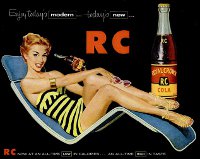My husband’s home town in Michigan is so small that, to them, the word “theatre” is 1) spelled “theater” and 2) always preceded by the word “movie”. And if you want to get to that “movie theater” you’ll need a car — because the closest one is 13 miles away in the next town over. Growing up, if he wanted a theatre experience of ANY kind he needed to head to Chicago.
Meanwhile, New York is so rife with theatre space that you can’t go to a Starbuck’s without being within a stone’s throw of one. Heck … there’s one in the building where I work. There was even a theatre connected to the restaurant I had dinner in last night. If you climb on any mailbox and squint, you can see independent theatre going on everywhere in New York.
I’m particularly fond of theatre companies who put on well crafted plays written by up and coming writers. Johnna Adam’s Angel Eater’s Trilogy is just such a work, and FLUX Theatre Ensemble is just such a company.
I went to see the first installment of the trilogy, Angel Eaters (directed by Jessi D. Hill) this past Saturday, and am looking forward to seeing the second, Rattlers (directed by Jerry Ruiz) later this week. The trilogy wraps up, both for me, as well as for its run, on November 22nd with 8 Little Antichrists. For those who are interested it’s not too late — you can catch any one of the shows before then or, if you’re really up for a full-day theatre experience, you can see the whole trilogy play out before your eyes in one jam-packed day this Saturday. (For more information go to the Flux site).
Angel Eaters, the first play of the trilogy, concerns itself with a poor, depression-era Oklahoma family and their particular take on the circle of life. On one end there’s Death (patriarch Herbert has been “stinking up the living room for three days now”) and on the other end, Life — in the form of an unwanted pregnancy (nothing a little swallow of turpentine couldn’t cure.).
In between these two guideposts lies everything else from faith, to regret, to good ole fashioned hoodwinking. Each character has a different swagger on their walk through life, be it Joann’s (Marnie Schulenburg) religious devotion that swings from babbling innocence to full blow transformation, her sister Nola’s (Tiffany Clementi) caustic cynicism (she’s raised her skirt once too often and hasn’t found salvation in it yet) … or their mother Myrtle (Catherine Michele Porter) who is so blindly bent on resurrecting her husband that she allows herself to believe two sweet-talking carnies (“Resurrection Boy” and his “uncle” Fortune Clay played by Isaiah Tanenbaum and Gregory Waller respectively).
When they claim they can bring back the dead … for the unheard of sum of 50 depression-era dollars … she’s quick to hand over the money, though she holds them to their claim in a rather unorthodox way. Weaving through the story is Doc O’Malley (Ken Glickfeld) whose education of Joann runs the gamut from teaching her to identify and imitate bird calls … right up to teaching her about such bird-related “games” as “A Bird in the Hand” … or its cousin, the one in the bush. Doc is kind enough to reward Joann with some chocolate every time she “wins”.
In between all these characters are links which begin to reveal themselves, and secrets which come to light in the most unusual ways. Let’s just say, it ain’t called Angel Eaters for nuthin’. Overall, it’s a spellbinding piece, full of strange humor, and thoughtful, heartbreaking moments of desperation. The final tableau of the play is both haunting as well as disturbing.
I sat down with Kelly O’Donnell of the Flux Theatre Ensemble who is also the director of the 3rd show in the series, 8 Little Antichrists, to talk about the Trilogy.
KTL: Right now your company is doing the Angel Eater’s Trilogy. What attracted you to this project?
KO’D: We were initially attracted to the project the first time we met Johnna Adams. She brought the first 2 scenes of Angel Eaters to our weekly workshop, which we call “Flux Sunday” and I remember saying “Wow, this seems like the type of play that Flux is drawn to.” It was unique, theatrical and magical. From there, we invited Johnna to our annual retreat where the ensemble worked together with her on the play. After some intense discussions on whether or not we should take on such a massively ambitious project, we decided to just go for it.
KTL: Is this the first trilogy your company has ever taken on? Were there any unexpected challenges?
KO’D: Yes, this is the first trilogy we have ever produced and there were a lot of challenges. The #1 challenge for us was finding a way to maintain our high standards in production value for three separate shows but within the budget of what is normally one show. This was tricky and we had to be creative. There were lots of logistical challenges as well. For example, we often needed three separate rehearsal spaces for each show because they would be rehearsing at the same time.
KTL: You’re director of the 3rd play in this Angel Eater’s Trilogy – 8 Little Antichrists. It’s the longest, as well as the last of the series. While each play can stand on it’s own, is there any added pressure knowing yours is the one that wraps up the whole theme?
KO’D: Not really any added pressure. Each director has had their own challenges with this project and I’m amazed at their work. Jessi Hill and Jerry Ruiz have done a remarkable job with Angel Eaters and Rattlers, respectively. For me personally, the big challenges were “How do we create a gelatenous sustaining foam birthing vat with such a small budget?” and “What is the best way to turn someone into bubble wrap with a nanossaulter?”. When you see 8 Little Antichrists, you’ll know what I mean!
KTL: I’ve enjoyed the first play, Angel Eaters, and look forward to seeing the rest of the arc. Without giving away too much of the plot, what can I expect from these next two plays?
KO’D: Well, you can expect 2 very different plays. Rattlers takes place about 40 years after Angel Eaters and it is a much more intimate and personal play that explores how several people are dealing with the mysterious and brutal death of one woman. 8 Little Antichrists is a futuristic film-noir thriller about the apocalypse that often borders on the absurd. However, both plays follow the same family that you saw in Angel Eaters but in different generations.
KTL: Each of the 3 plays has a different director. Did you specifically consult each other to make sure you were all being true to the same voice, or did you purposefully keep out of each other’s way in order to not be influenced by each other?
KO’D: All three of the directors and the design team met regularly for about 2 months prior to the first rehearsal and we tried to find common themes that could speak to each other throughout the Trilogy. It was also important for us to meet regularly so that we could come up with set, lighting and sound designs that would work well in a repertory setting. With a different play happening each night, we needed to find a careful balance between the needs of each individual play and the realities of our venue, schedule and budget. We were fortunate to have an excellent design team and the Trilogy could not have been so successful without them. They are truly amazing artists.
KTL: Tell me about Flux — you’re just coming off “2008 -The year of Transformation”. Tell me what that means.
KO’D: We chose three plays for our season which wrestle in their own unique way with how life transforms the body. In A Midsummer Nights Dream, the characters literally find their hearts and bodies transformed, Other Bodies explores a gender transformation and in the Angel Eaters Trilogy, characters are transformed into celestial beings with a heightened awareness of the universe. Also, when the Trilogy wraps up, this will mark 3 years that our group has worked together, which I think is a symbolic number – especially in the theatre. Though, I confess, it’s completely coincidental!
KTL: What are some of the benefits of being part of an independent theatre ensemble? Anything that makes it easier than being part of a bigger machine?
KO’D: Having done a lot of work for “big machines”, I can say that one of the major benefits of being part of an indie theatre company is that we get to decide what type of work we do and we are able to take creative risks. Flux is artist-driven as opposed to being producer-driven and we strive to collaborate and make decisions based on the needs of the ensemble as much as we can. Sometimes, this can be a challenge because it’s often easier to have one person say “Ok, we are doing A, B and C. Now, do it.” But we try to take the needs of each ensemble member into consideration before we decide on our productions and each member has a voice in the final decision. Granted, this can be tough because we each have our own unique ideas and needs but, ultimately, I think we end up with truly collaborative theatre and Flux often feels more like a family than it does a company.
KTL: What last thought would you like to leave our readers with?
KO’D: Tickets to the Trilogy are still on sale until November 22nd! You can buy tickets at www.fluxtheatre.org They are truly great plays and, if you have the time to see all three, I highly recommend it. We have a special deal where you can see the entire Trilogy for $40, which is cheaper than most theatre in New York City. Also, please go to our website and join our mailing list so you can get monthly updates on what Flux is doing. We will be announcing our 2009 season very soon and we have many other events throughout the year!
KTL: Thanks, Kelly! We look forward to seeing more from Flux!
KO’D: Thank you, Karen!









{ 0 comments… add one now }